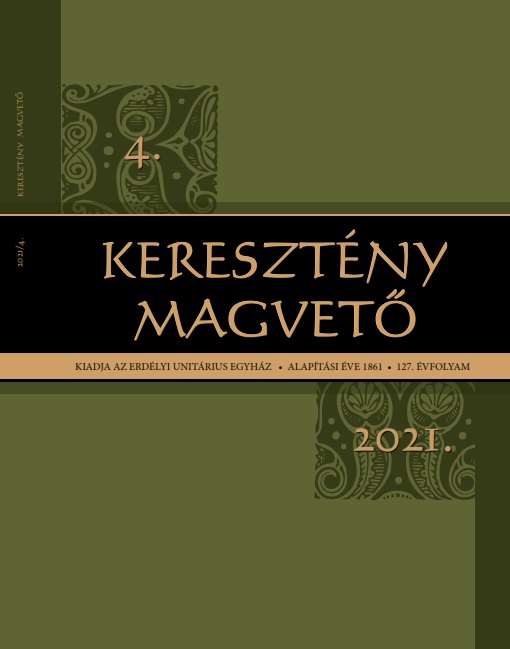Gál Miklós följegyzései II.
Miklós Gál's Notes II.
Contributor(s): Júlia Andorkó (Editor), Sándor Kovács (Editor)Subject(s): Recent History (1900 till today)
Published by: Erdélyi Unitárius Egyház
Keywords: Bucharest; Communism; family history; Kolozsvár (Cluj- Napoca); memoirs; nationalist oppression; Second Vienna Award; Torda (Turda); Trianon Treaty; World War II; Boros Rev. Dr. György (1855–1941);
Summary/Abstract: The memoirs of Dr. Miklós Gál (1889–1983), lawyer, lay president of the Unitarian Church (1938–1951), Member of Parliament, are published in 87 typed pages. Shortly before his death, Gál dedicated and gave his notes to his grandson Miklós Gál who then gave a photocopy to the historian Dr. Attila Gábor Hunyadi, who offered it to our journal for publication. The second part of the memoirs covers events from the 1920’s through World War II and the subsequent instsallation of the Communist regime in 1948.Being a firm supporter of the Unitarian Church, Miklós Gál held diff erent offices throughout the years. As the supervisor of the Unitarian Torda-Aranyos district he did not support the Mediaș movement (it’s aim being the replacement of bishop Dr. György Boros (1855–1941)). Between 1938 and 1948 Gál served as the lay president of the Unitarian Church. This decade includes the years following the Second Vienna Award: Southern Transylvania remained under Romanian rule, so Gál organised the Unitarian Church of Southern Transylvania. Upon the arrival of enemy troops in Transylvania, Gál and his family fled to Hungary, having his values and properties lost to the war, to “benevolent” neighbours and to the CASBI (House of Administration and Supervision of Enemy Goods), that confiscated “enemy” assets. After the Trianon Treaty he felt obligated to do all in his power to help the Hungarian minority, so he became a politician in the Hungarian Party. Throughout his political career he witnessed – and tried his best to ease – the most difficult times for his nation: disfranchisement, injustice, oppression in times of war under the Romanian Kingdom and in times of peace under the Romanian Communist-nationalist regime.
Journal: KERESZTÉNY MAGVETŐ
- Issue Year: 127/2021
- Issue No: 4
- Page Range: 393-424
- Page Count: 32
- Language: Hungarian

